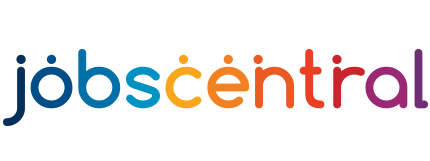
Congratulations, you’ve passed the first round! You’ve gotten a call inviting you to the next round in the application process, the interview with the sponsoring organisation. (Or interviews, to be exact. Organisations typically have three to four rounds of interviews before deciding who to send the coveted offer letter to.)
The interview is the first time you will meet the organisation face-to-face, exchanging views and information, so its importance cannot be overstated. While your good results (and a well-organised BrightSparks application) may have gotten you through the door, here is where the real challenge begins as your answers are scored against those of many other applicants.
It’s up to you to make an impression and get yourself one
step closer to your scholarship. But how?
1. Research extensively beforehand
We say this a lot, but research is key. (And this applies to all interviews, not just scholarship-related ones.)
Looking through an organisation’s corporate website should give you a good enough idea of the work ahead. The next step would be to research newspapers and publications to see what the organisation has been doing, what triumphs it accomplished and what difficulties it faces.
It is also advisable to be
well-informed about the scholarship itself. Read through the bond requirements,
accepted degrees and universities, and most importantly, the organisation’s
expectations of you.
But don’t forget to look near while
seeking far. Email the person who contacted you about the interview and ask
about the number of interview rounds, who your interviewers may be or if any
formal assessments will be conducted. Even if they cannot tell you specifics,
your enthusiasm and dedication will be apparent in your actions.
2. Practice your pitch
A sponsoring organisation is looking
to grow someone who will contribute to its work and become an individual it can
be proud to have as part of its team. What makes you that person?
Come up with a “pitch” for yourself
that showcases your best qualities and, more importantly, how they can help the
organisation. For example, your experience in Gardening Club may be relevant to
your application at NParks. But don’t stop there! Prepare some anecdotes about
how you can directly contribute to the work, or projects and plans that you
think would benefit them.
Practice this pitch out loud,
preferably with a “test audience”, to make sure your answers and smooth and
confident on the day. You should also draft up some expected interview
questions and practice similarly with those. During an interview, the delivery of
your answer is as important as the answer itself, so make sure you aren’t
stumbling over big words or “uhm”ing and “ahh”ing to yourself.
3. Ask your own questions!
An interview is a two-way street. It
is not only the first time the organisation meets you, it is the first time you
meet them.
So, if you have anything you want to
know about them, now’s the time to ask! Not only will you get your answers,
curiosity about the organisation and its processes speaks well of your work
ethic and passion. Some scholars, for example, gauged work culture and dynamics
during the interview, which led to their decision to join.
That said, please do not ask just
for the sake of asking. A question that can be answered with a Google search
(e.g., “how big is your organisation?”), or a question that only shows your
self-interest (e.g., “so how much is the stipend I will receive?”) is only
going to reflect badly on you.
Remember, the interview is the first time you will meet members of a sponsoring organisation face-to-face. As with any once-in-a-lifetime meeting, prepare well and put your best foot forward!
Business card photo created by katemangostar - www.freepik.com



